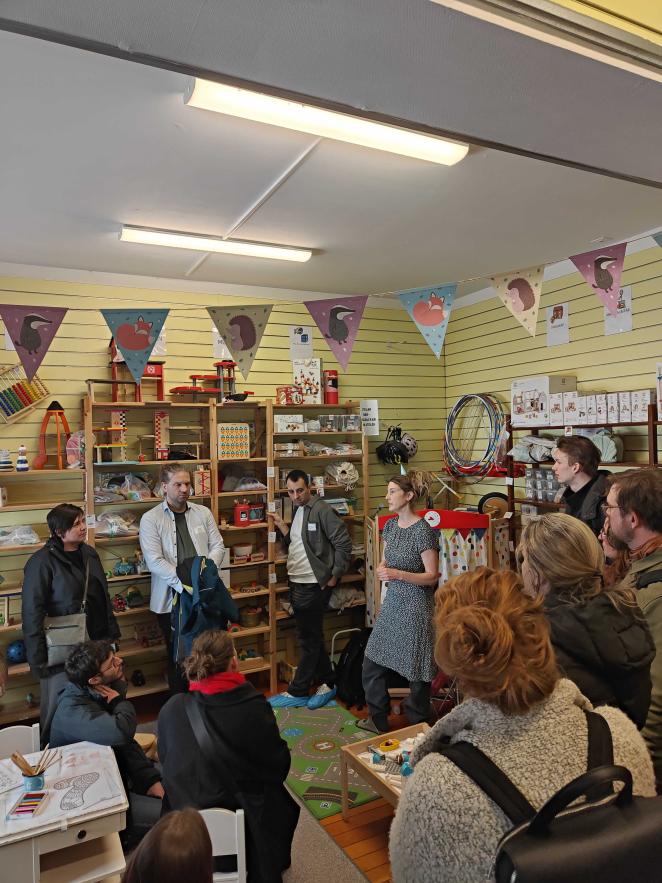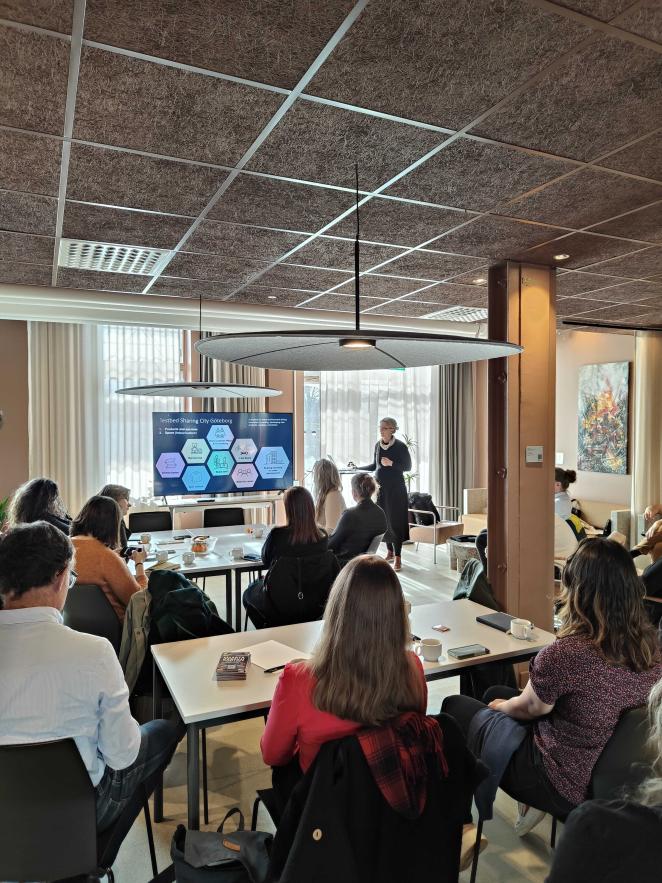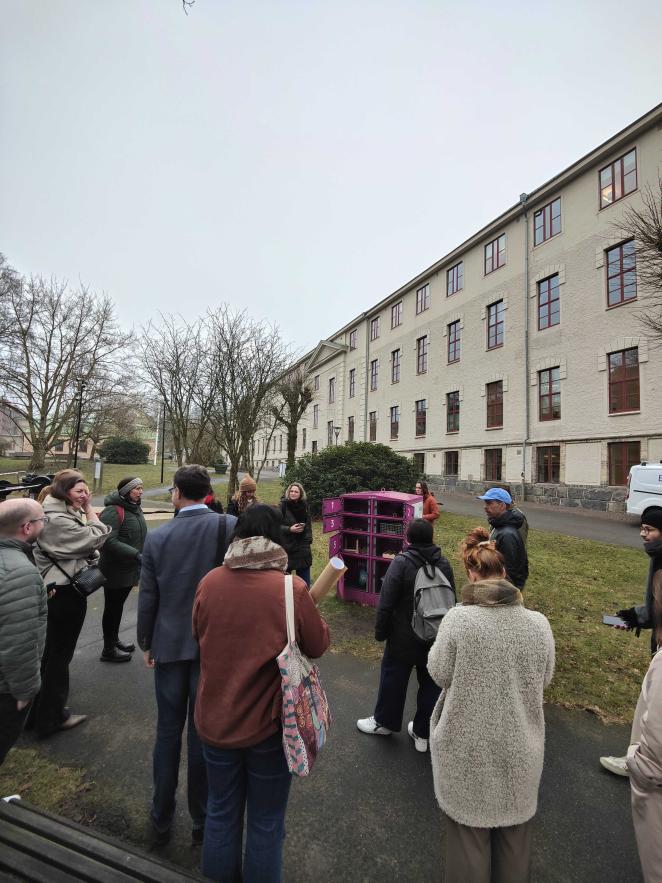The Digital Kiosks project partners convened for their 2nd meeting in Gothenburg, Sweden, on March 26th and 27th, 2025, hosted by Familjebostäder.

Hello from Gothenburg
Representatives from the 12 partner organizations across 7 countries gathered to advance the project's goals of developing and implementing smart locker sharing stations. The meeting focused on sharing progress, addressing implementation challenges, and refining strategies for successful pilot deployment.
A big thank you to our hosts from Familjebostäder in Gothenburg for hosting our second partner meeting!

Day 1 - Posters and fika
Day 1 centered on partner updates and collaborative problem-solving. Through poster presentations, each partner shared progress on their pilot initiatives, outlining successes and challenges encountered.
Common implementation hurdles were identified, including:
- Public Procurement: Navigating public procurement for sharing stations, ensuring fairness, transparency, and compliance with competition rules, and integrating service operations into the procurement process.
- Pilot Budgets: Ensuring allocated budgets are sufficient for planned activities, addressing higher-than-expected costs, and exploring leasing as a solution.
- Operations and Responsibilities: Determining management of day-to-day operations and long-term maintenance, and defining clear roles with private partners.
- User Engagement: Involving and motivating citizens to use sharing stations, and understanding user needs and preferences.
- Location Identification: Addressing competition for public space in cities and exploring collaborations with private landowners.
- Long-Term Sustainability and Scalability: Ensuring pilots continue beyond the project timeframe, scaling sharing stations, and developing flexible service models and sustainable financing.
The afternoon featured an interactive “fika” session. The first part included presentations from local Gothenburg stakeholders – Familjebostäder, the City of Gothenburg, and Kollaborativ Ekonomi Sverige/Smarta Kartan – showcasing the city's sharing economy landscape. The second part facilitated partner discussions on the city's role in the access economy, defining pilot success, and fostering collaboration between access services.

Day 2 - Piffl and preferences
Day 2 shifted towards practical engagement and strategic planning. Partners gained firsthand experience with sharing station technology through a demonstration by sharing station provider Piffl. A key takeaway was the need for clearer communication of the station's purpose - using glass screens is a small but important design adjustment that could increase usability of the stations.
The University of Ghent led an ecosystem mapping workshop, enabling partners to analyze the actors, resources, activities, and value flows within their pilot ecosystems.
The meeting concluded with a session dedicated to user engagement and communication, in which partners discussed and came up with :
- Declared vs revealed preferences: Partners were reminded to approach citizen feedback with care. What people say they want (declared preferences) doesn’t always match what they end up doing (revealed preferences). This gap can influence how pilots are used in practice, and it’s important to keep that in mind when designing services.
- It’s all in the details: Seemingly small things can make or break a pilot. Choosing the right location, giving clear instructions on how to use the station or borrow an item, these little details can significantly impact whether people use the service or not.
- Put yourself in the shoes of the end-user: It’s essential to understand the everyday barriers that users might face. For example, people from lower-income backgrounds, who could benefit most, may hesitate to use the service out of fear of damaging something and having to pay for it. Empathy and user-centred design are key to ensuring accessibility for all.
- Define a compelling storytelling: Strong communication is crucial. To motivate citizens, partners need to frame the message in ways that resonate. It was noted that economic arguments, such as saving money, often have more impact than environmental ones when encouraging people to try new services.
- Survey distribution: Municipalities find it challenging to get people to respond. Using familiar digital platforms to distribute surveys can help, making the format engaging and easy to complete.
